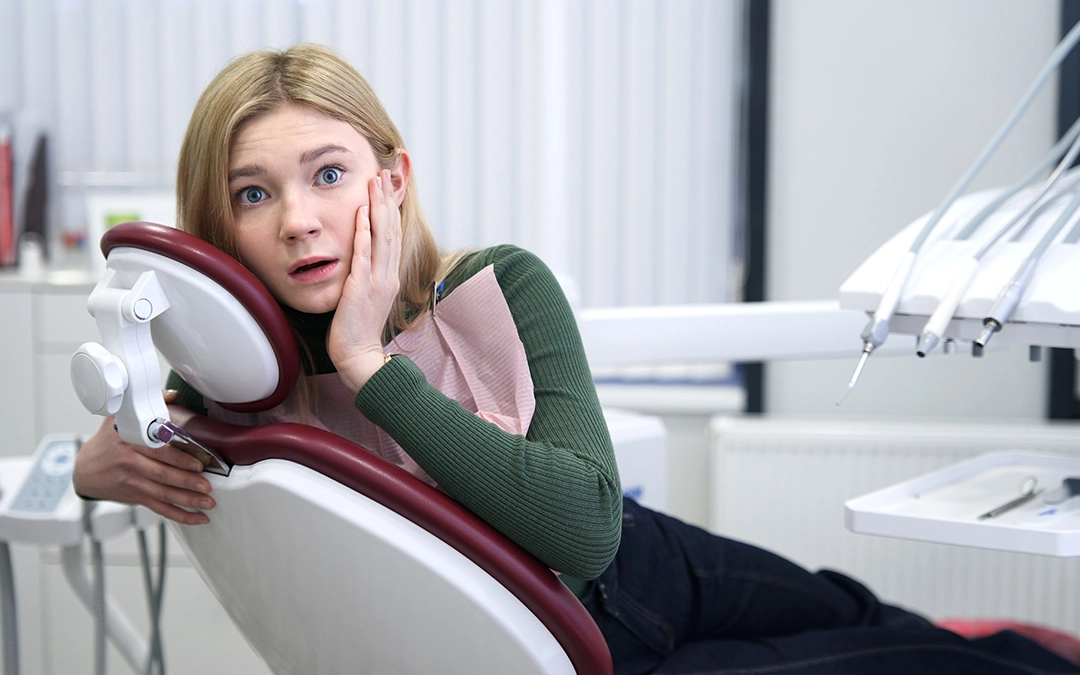When tooth loss doesn’t wait for old age
Think losing teeth only happens when you’re older? Think again. Australians as young as 15–24 are already missing an average of 2.5 teeth, while those aged 25–44 have lost about 3.3 teeth, according to recent studies. By middle age, that number more than doubles, and seniors end up missing almost half their teeth on average.
These numbers might sound surprising, but they reveal a hard truth: tooth loss often starts earlier than most people realise. And it’s not just about forgetting to brush now and then. Lifestyle habits, hidden dental problems, and even stress are silently damaging young smiles.
If you’ve ever thought, “I’m too young to worry about losing teeth”,—this is your sign to read on.
Real reasons young people lose teeth
1. Gum disease
While cavities often get most of the attention, gum disease is actually the leading cause of tooth loss worldwide—and it can start affecting people in their teens and twenties. Gum disease begins when plaque, a sticky film of bacteria, builds up on teeth and hardens into tartar. This irritates the gums, leading to gingivitis (red, swollen, bleeding gums).
If left untreated, gingivitis can progress to periodontitis, where infection spreads deeper, damaging the ligaments and bone that support teeth. Without that foundation, teeth become loose and may eventually fall out.
Why young people are at risk:
- Skipping flossing or rushing through brushing leaves bacteria behind.
- Smoking and vaping reduce blood flow, slowing the body’s ability to fight infection.
- Genetics can play a role, making some people more prone to gum problems.
Warning signs: Bleeding when you brush, persistent bad breath, and tender gums may seem minor—but they can be early indicators of gum disease.

2. Tooth decay from sugar and acids
Tooth decay happens when bacteria in the mouth feed on sugars and produce acid that attacks enamel. Over time, this weakens teeth, leading to cavities. If decay spreads deep enough, it can destroy the tooth structure to the point where extraction is the only option.
Why it’s especially common among youth:
- Busy schedules often lead to fast food, energy drinks, and soft drinks.
- Constant sipping on sugary or acidic drinks (like sodas, juices, or sports drinks) gives bacteria a steady fuel source.
- Even “healthier” options like sparkling water or citrus smoothies can erode enamel due to high acidity.
Once enamel is gone, it doesn’t grow back. That’s why prevention is key.

3. Sports injuries and accidents
Playing football, cricket, hockey, skateboarding, martial arts, or even just tripping during everyday activities can result in broken or knocked-out teeth. Unlike a cut or bruise, teeth don’t heal on their own. If a tooth isn’t replaced or treated promptly, nearby teeth can shift, bite problems may develop, and the jawbone can begin to deteriorate.
Prevention tip: Wearing a properly fitted mouthguard during sports can dramatically reduce the risk of permanent damage. It’s a small step with lifelong benefits.
4. Stress, grinding, and clenching (Bruxism)
With school pressures, work deadlines, and financial stress, young adults today are under constant pressure. This stress often shows up at night, with teeth grinding or clenching. Over time, this can wear down enamel, crack teeth, and even put pressure on the jaw joint.
Clues you may grind your teeth: Morning headaches, sore jaw muscles, or flattened edges of teeth.
5. Neglecting dental visits
Pain isn’t always the first sign of a dental problem. Cavities, gum disease, and bite issues can progress quietly in the background until it’s too late to save the tooth. Regular dental check-ups are crucial because they catch these issues early—when they’re most treatable.
Why it matters: Skipping appointments may feel harmless now, but it increases the risk of bigger, more expensive, and sometimes irreversible problems later on.
6. Smoking, vaping, and substance use
Tobacco use—whether smoking or vaping—has serious effects on oral health. Nicotine restricts blood flow to the gums, making it harder for tissues to heal and fight off infection. Over time, this increases the risk of gum disease, bone loss, and ultimately, tooth loss.
Recreational drugs can be even more destructive. For example, methamphetamine use often leads to rapid, severe decay known as “meth mouth,” which destroys multiple teeth in a short period.

7. Genetics and underlying health conditions
Sometimes, tooth loss isn’t just about habits—it’s about health. People with conditions like diabetes are more prone to gum disease, while eating disorders or autoimmune issues can weaken both gums and bones. Certain medications, including those that cause dry mouth, also reduce saliva—the mouth’s natural defence against bacteria and acid.
Why saliva matters: It washes away food particles, neutralises acid, and strengthens enamel with minerals. Without enough saliva, the risk of decay and gum problems increases dramatically.
How to keep your teeth
The best part in all of this is most problems can be prevented with the right habits and care.
Brush and floss daily
Consistency beats perfection. Twice-daily brushing and once-a-day flossing go a long way.
Protect your teeth during sports
A custom-fitted mouthguard is a small investment with big rewards.
Don’t skip checkups
Professional cleaning and exams can stop problems before they become serious.
Rethink your diet
Cut back on sodas, energy drinks, and sticky sweets. Choose water, cheese, nuts, and veggies as tooth-friendly snacks.
Manage stress
Consider relaxation techniques or ask your dentist about a night guard for grinding.
Quit smoking or vaping
Your gums, lungs, and overall health will thank you.
Why replace missing teeth?
Losing a tooth might seem like just a cosmetic issue, but it has deeper effects on both your oral health and overall wellbeing. When a gap is left untreated, surrounding teeth can shift into the empty space, leading to misalignment and bite problems. Over time, the jawbone in that area can also shrink because it no longer has a tooth root to stimulate it, making future treatments more complex.
Beyond the physical effects, missing teeth can affect your ability to chew comfortably, change how you speak, and even impact your confidence in social situations. Replacing a missing tooth doesn’t just restore your smile—it protects your long-term health.

Help yourself recover with professional treatments
Even if damage has already started, dentists have advanced solutions:
- Deep cleaning (scaling and root planing): Removes tartar and treats gum disease.
- Fillings, crowns, and root canals: Restore and protect damaged teeth to prevent extractions.
- Orthodontics (e.g., clear aligners): Correct bite problems that may cause uneven wear and stress.
- Dental implants: Replace missing teeth permanently while preserving jawbone structure and natural function.
The sooner treatment begins, the better the chances of keeping your natural teeth healthy and strong.
Your bright future smile starts right now
Tooth loss in young people is a growing issue, but it doesn’t have to be your story. With awareness, prevention, and the right care, you can protect your natural teeth and enjoy a healthy smile well into the future.
You know your teeth do more than just chew food—they shape your appearance, support your speech, and boost your confidence. Losing even one too soon can create lasting effects, but taking small steps today can prevent bigger problems tomorrow.
Prioritise your oral health now, and your smile will remain one of your greatest assets for life.



